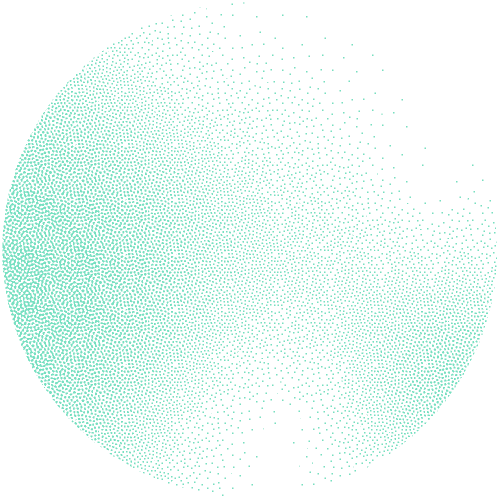ATGCCGGAATTGGCACATAACAAGTACTGCCTCGGTCCTTAAGCTGTATTGCACCATATGACGGATGCCGGAATTGGCACATAACAAGTAC
TGCCTCGGTCCTTAAGCTGTATTGCACCATATGACGGATGCCGGAATTGGCACATAACAACGGTCCTTAAGCTGTATTGCACCATATGACG
GATGCCGGAATTGGCACATAACAAGTACTGCCTCGGTCCTTAAGCTGTATTTCGGTCCTTAAGCTGTATTCCTTAACAACGGTCCTTAAGG
ATGCCGGAATTGGCACATAACAAGTACTGCCTCGGTCCTTAAGCTGTATTGCACCATATGACGGATGCCGGAATTGGCACATAACAAGTAC
TGCCTCGGTCCTTAAGCTGTATTGCACCATATGACGGATGCCGGAATTGGCACATAACAACGGTCCTTAAGCTGTATTGCACCATATGACG
GATGCCGGAATTGGCACATAACAAGTACTGCCTCGGTCCTTAAGCTGTATTTCGGTCCTTAAGCTGTATTCCTTAACAACGGTCCTTAAGG


Summer School on Genetic Epidemiology



09 June 2022

09 June 2022




For-profit: 300 CHF
Next course(s):
| 13 - 15 Jun 2024 |

|
Davos |
Overview
This summer school aims at providing guidelines on optimal practice in designing, analyzing, and interpreting genetic epidemiological studies, for those who would like to actively analyze DNA sequencing from whole genome sequencing or whole exome sequencing studies (NGS), genome-wide association studies (GWAs), candidate gene or even single genetic marker studies. Knowledge and awareness about all steps of a genetic epidemiological study, including planning, data preparation, quality control or statistical analysis will be considered as this is crucial for the cost-efficient use of these data. Special attention will be given to data generation and quality control procedures of sequencing and genotyping technologies. Confounding due to population heterogeneity, i.e., population stratification, or multi-ethnic populations and cryptic relatedness are important in genetic studies. Approaches to take these challenges into account will be discussed. The concepts of imputing missing genotypes and haplotype inference will be explained. Replication and meta-analysis are commonly used in genetic epidemiological studies, and these concepts will be introduced. Finally, Mendelian randomization and the underlying assumptions will be explained.
Audience
The target audience is advanced graduate students and postdoctoral researchers from bioinformatics, biostatistics and life sciences.
Learning outcomes
At the end of the course, the participants will be able to:
- define the basics of molecular genetics
- recognize modes of inheritance from pedigrees
- describe the most important study designs for association analysis: case-control and cohort designs, designs for quantitative traits
- understand the problems of population stratification and cryptic relatedness
- explain the most important genetic marker types and their characteristics
- list the most important genotyping technologies
- discuss the quality control procedures and measures for the different genotyping technologies
- conduct simple association analyses
- estimate genetic effects
- calculate required sample sizes for association studies
- understand the concept of genotype imputation and haplotype-based analyses
- describe the problem of multiple testing with genetic data
- describe the concept of meta-analysis with genetic data
- describe the concept of Mendelian randomization studies
- describe the most important concepts for gene-based analyses using rare variants
Prerequisites
Knowledge / competencies
Each attendee is expected to familiarize himself/herself with basic concepts in genetics. This can be easily achieved by taking the first four chapters of this online course.
Technical
Course material will be provided electronically. Course participants should bring their own electronic device. The course will focus on methodological concepts, and there is no requirement for a specific software package to be installed.
Application
The registration fees for academics are 140 CHF and 300 CHF for for-profit companies. Registered bachelor or master students without an already completed master degree will receive a special discount and the fees, after acceptance, will be decreased to 50 CHF.
The course fee covers coffee breaks and lunches on June 30, July 1 and July 2.
Membership requirement: All participants need to be members either of the Austro-Swiss Region (ROeS) or the German Region (DR) of the International Biometric Society, or of the SIB Swiss Institute of Bioinformatics.
You will be notified by email of your registration confirmation on 25 of February. Upon reception of the confirmation email, participants will be asked to confirm attendance by paying the fees within 5 days.
Applications close as soon as the places have been filled and the number of participants will be limited to 30. Deadline for free-of-charge cancellation is set to 9/06/2022. Cancellation after this date will not be reimbursed. Please note that participation in SIB courses is subject to our general conditions.
Schedule
- Wed: 14.00 - 15.30 and 16.00 - 17.30.
- Thu/Fri: 9.00 - 10.30, 11.00 - 12.30, 13.30 - 15.00, 15.30 - 17.00
- Sat: 9.00 - 10.30, 11.00 - 12.30
Venue and Time
Campusgebäude, Hörsaal Parsenn, Medizincampus Davos, Herman-Burchard-Str. 1, CH-7265 Davos Wolfgang
The course will start on June 29 at 14:00 CET and end on July 2 at 12:30 CET. Precise information will be provided to the participants in due time.
Accommodation suggestions
Hotel Strela offers an attractive unit price for course participants with an additional reduction if rooms are shared. Two types of double rooms are available for single or double use. The package price is for three days and includes breakfast. Please, contact the hotel directly to make your reservations.
Additional information
Instructors: Prof. Dr. Andreas Ziegler, Raphael Betschart MSc, Dr. Hugo Babel, all Cardio-CARE, Medizincampus Davos. Dr. Michael Getaz and Dr. Van-Duc Luu from Illumina.
Course coordinators: Prof. Dr. Andreas Ziegler (Cardio-CARE) and Dr. Patricia Palagi (SIB Training).
Course material: The textbook “A Statistical Approach to Genetic Epidemiology”, 2nd ed., by Andreas Ziegler and Inke R. König is not a requirement but might be beneficial and can be obtained from the course instructors.
For more information, please get in contact by:
- Email: info@cardio-care.ch
- Phone: +41 81 410 1801
- Web: through the Cardio-CARE website
COVID safety concept: we are monitoring the situation, and any changes will be informed to the course participants in due time.
You are welcome to register to the SIB courses mailing list to be informed of all future courses and workshops, as well as all important deadlines using the form here.
Please note that participation in SIB courses is subject to our general conditions.
SIB abides by the ELIXIR Code of Conduct. Participants of SIB courses are also required to abide by the same code.
| Supported by : | |
 |
 |